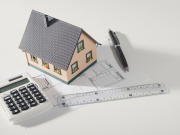Choosing between buying or renting a home is a significant decision, especially in the Philippines’ diverse and dynamic real estate landscape. This decision doesn’t just affect your immediate living situation; it has far-reaching financial and lifestyle implications.
In the Philippines, this housing dilemma is a common predicament many individuals and families face. The choice isn’t straightforward with the bustling urban areas offering high-value properties, and strong rental demand, and more rural regions providing affordable home ownership and rental options.
Resources like HousingInteractive, one of the top online brokerage platforms in the Philippines, can offer invaluable assistance in navigating this complex decision. Offering a wealth of information and insights on the real estate market, it helps potential homeowners and renters make informed decisions.
I. Understanding the basics
The Philippine real estate is crucial to understanding the basics of buying and renting. Buying a home involves acquiring property ownership. You pay a lump sum or make mortgage payments over a set period until you own the property outright. Buying homes in the Philippines often means investing in a condominium in urban areas like Metro Manila or a house and lot in more suburban or rural areas.
On the other hand, renting is a contractual agreement where you pay a homeowner monthly for the right to live in their property. It’s popular in city centers where employment opportunities are concentrated, and properties are typically high-priced.
The fundamental differences between buying and renting lie in ownership, cost, and commitment. When you buy, you’re investing in an asset that could be appreciated over time. Still, you’re also responsible for maintenance and property taxes—renting offers more flexibility with less financial commitment upfront but without the potential return of property ownership.
Understanding these basics through platforms like HousingInteractive can help you weigh your options in the Philippines’ diverse real estate market.
II. Pros and Cons of Buying a House
Buying a house in the Philippines offers more than just a living space. It’s an investment with numerous benefits.
Financial Security and Asset Ownership
Owning a home can provide financial security. It’s an asset that can be used as collateral for loans or passed down to future generations. Additionally, paying for a mortgage can often be comparable to rental costs in the long run.
Potential for Property Appreciation
Property values can be appreciated in thriving urban areas like Metro Manila or emerging markets like Cebu and Davao. This presents the potential for a significant return on your investment.
Freedom and Stability
Buying a house allows you to customize your space without landlord restrictions. It also offers stability, with no worry about rental increases or eviction.
However, home ownership isn’t without its cons.
Maintenance Costs
As a homeowner, you’re responsible for all maintenance costs. From minor repairs to major upgrades, these expenses can add up.
Property Taxes
Homeowners must pay annual property taxes, which can be significant depending on the property’s value and location.
Market Risks
While properties can appreciate, they can also depreciate due to economic downturns or changes in the neighborhood.
Weighing these pros and cons is essential when considering buying a house. Platforms like HousingInteractive can provide valuable insights to help you make an informed decision in the Philippine real estate landscape.
III. Pros and Cons of Renting a House
Renting a house in the Philippines has unique advantages and disadvantages.
Flexibility and Mobility
One of the biggest benefits of renting is its flexibility. If your job requires you to move frequently or you’re still exploring different neighborhoods, renting can provide the mobility you need.
Lower Upfront Costs
Compared to buying, renting involves lower initial costs. There’s no need for a hefty down payment; only a deposit and advance rent are typically required.
No Maintenance Responsibilities
When you rent, maintenance and repair responsibilities generally fall on the landlord, freeing you from unexpected expenses.
However, there are downsides to consider.
Lack of Equity
Unlike buying, you’re not building equity when renting. Your monthly payments go to the landlord, not towards an asset that could be appreciated over time.
Rental Increases
Over time, it is important to be mindful that rental rates have the potential to increase, which can expose you to potential cost volatility.
Limited Control
As a tenant, you have less control over your living space. Landlord restrictions may limit your ability to customize your home.
With resources like HousingInteractive, understanding these pros and cons can help you decide whether renting a house in the Philippines suits your lifestyle and financial goals.
IV. Financial Implications
Exploring the financial implications of buying versus renting in the Philippines can help you make an informed decision.
Cost Analysis: Buying vs Renting
In the Philippines, the cost of buying a house varies greatly depending on its location and size. In Metro Manila, for example, the average price of a one-bedroom house was 176 thousand USD or around PHP 9 million in 2023. On the other hand, the average monthly rent for a similar property in the exact location was 705 UDS, or around PHP 39,000. While renting may initially seem cheaper, buying could be more cost-effective over time as you build equity in your property.
Impact on Credit Scores
Both buying and renting can impact your credit score in the Philippines. Taking out a mortgage to buy a home and making consistent payments can strengthen your credit score. Similarly, some landlords may report rent payments to credit bureaus, which can help build your credit history.
Tax Implications
Homeowners in the Philippines can deduct mortgage interest from their income tax, potentially providing significant savings. Renters, however, do not receive such benefits. It’s important to consult a tax professional to understand these implications fully.
Buying and renting depends mainly on your financial situation, lifestyle preferences, and long-term goals. Consider these aspects carefully to make the best choice for your circumstances.
V. Lifestyle Considerations
When choosing between buying and renting a house in the Philippines, it’s important to consider how each option fits into your lifestyle.
Personal Freedom and Flexibility
Renting can offer more flexibility as it lets you move with relative ease if your job or personal circumstances change. It’s generally easier to break a lease than to sell a property. However, owning a home allows you to modify your space, which is typically restricted when renting.
Stability and Community
Owning a home can provide a sense of stability and community. Homeowners tend to stay in one place longer, allowing for stronger neighborhood ties. Homeownership is associated with prestige in many parts of the Philippines, particularly in gated communities.
Maintenance and Repair Responsibilities
Renters usually have fewer maintenance responsibilities as the landlord often handles these. As a homeowner in the Philippines, you would be responsible for all maintenance and repairs. However, this also means you control how these tasks are handled.
Each factor plays a significant role in the buy vs rent decision. It’s essential to consider your personal preferences, lifestyle, and long-term goals when making this decision.
VI. Real Estate Market Conditions and Trends
Understanding the current real estate market conditions and trends can provide valuable insights for individuals considering buying or renting a house in the Philippines.
Current Real Estate Market Overview
The real estate industry is a key driver of the Philippine economy, generating gross value added of about 536 billion Philippine pesos in 2022. National house prices have been rising strongly, with condominium unit prices increasing by 12.9% in 2022 from the previous year.
Renting Market Trends
The rental market in the Philippines also shows signs of growth, particularly in Metro Manila’s central business districts where luxury condominium units are in high demand.
Factors Influencing the Buy or Rent Decision
Several factors influence buying or renting a house in the Philippines. These include personal financial situation, lifestyle preferences, housing market conditions, and future plans. For instance, the forecasted rise in the real estate markets in the Philippines scoring 6.9 out of 10, with a forecasted rise to 7.5, might make buying a more attractive option for some.
It’s crucial to stay informed about the real estate market trends and conditions when making decisions about housing. This includes monitoring the local market dynamics, national trends, and global economic indicators.
VII. Making the Right Decision
Deciding whether to buy or rent a house in the Philippines involves carefully considering several factors. Here are some steps to help you make an informed decision:
Questions to Ask Before Deciding
Reflect on your financial situation, personal preferences, and future plans. Consider questions such as: How stable is my income? How long do I plan to stay in one location? Am I prepared for the responsibilities of homeownership?
Tools and Calculators to Help Decide
Several online tools and calculators can help you compare buying vs. renting costs. For instance, the Global Property Guide has a Buy vs Rent Calculator specifically designed for the Philippines.
Consulting with Real Estate Professionals
Seek advice from real estate professionals who deeply understand the market trends and conditions in the Philippines. They can provide valuable insights and guidance to help you make the best decision.
VIII. Conclusion
Buying or renting a house in the Philippines depends on various factors, including market conditions, financial implications, and lifestyle considerations. It’s crucial to thoroughly analyze all these aspects and consult with professionals if needed.
Remember, there’s no one-size-fits-all answer to the buy vs rent question. Each option has pros and cons; the best choice depends on your circumstances. So take your time, research, and make the right decision.

























